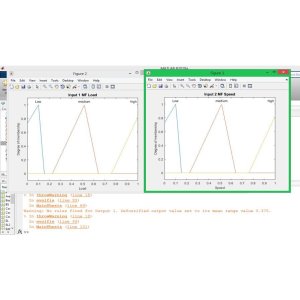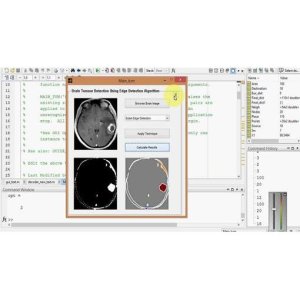Adaptive Traffic Engineering System with Virtual Routing: AMPLE
Problem Definition
Problem Description:
The existing network management systems face challenges in handling traffic efficiently to prevent congestion and disruptions in service. With the increasing complexity of network topologies and unpredictable traffic dynamics, there is a need for a more adaptive traffic engineering system. The current techniques may not be effective in optimizing resource management and controlling traffic conditions effectively. There is a need to develop a new system that can adaptively control traffic by utilizing multiple virtual routing topologies. This system should also focus on offline link weight optimization to maximize routing path diversity and reduce the time taken to manage traffic.
The new technique should be able to effectively address the unpredicted traffic dynamics and improve overall network performance.
Proposed Work
The proposed work titled "AMPLE: An Adaptive Traffic Engineering System Based on Virtual Routing Topologies" aims to address the challenges of network management systems in handling traffic efficiently to prevent congestion and disruptions in service. This research introduces a novel technique called AMPLE, which utilizes multiple virtualized routing topologies to dynamically control traffic conditions. The core component of AMPLE is the offline link weight optimization algorithm, which optimizes link weights based on the physical network topology to enhance routing path diversity across virtual routing topologies for long-term operation. By implementing this technique, the time required to manage traffic is reduced, and the system effectively adapts to unpredictable traffic dynamics. This study falls under the categories of C#.
NET Based Projects and Wireless Research Based Projects, specifically focusing on .NET Based Projects and Routing Protocols Based Projects. The software used for this project includes C#.NET for coding and implementation purposes.
Application Area for Industry
The project "AMPLE: An Adaptive Traffic Engineering System Based on Virtual Routing Topologies" can be applied in various industrial sectors, particularly in the telecommunications and networking industry. These sectors often face challenges in managing traffic efficiently to prevent congestion and disruptions in service. By utilizing multiple virtual routing topologies and implementing an adaptive traffic control system like AMPLE, organizations in these sectors can optimize resource management, improve network performance, and handle unpredictable traffic dynamics effectively. This project's proposed solutions, such as offline link weight optimization and dynamic traffic control, address the specific challenges faced by industries dealing with complex network topologies and fluctuating traffic patterns. By reducing the time required to manage traffic and enhancing routing path diversity, organizations can benefit from improved overall network performance and a more reliable service delivery.
The benefits of implementing AMPLE extend beyond the telecommunications and networking sectors to other industries like e-commerce, transportation, and healthcare, where efficient traffic management is essential for seamless operations. For e-commerce companies, ensuring a smooth online shopping experience for customers requires effective traffic handling to prevent bottlenecks and delays in website loading times. In the transportation sector, managing traffic flow for logistics and transportation services is critical for timely deliveries and route optimization. Similarly, in the healthcare industry, ensuring secure and efficient data transmission is crucial for patient care and medical services. By applying the adaptive traffic engineering system proposed in this project across various industrial domains, organizations can enhance their network performance, improve resource management, and adapt to changing traffic conditions more effectively.
Application Area for Academics
The proposed project "AMPLE: An Adaptive Traffic Engineering System Based on Virtual Routing Topologies" presents a valuable resource for MTech and PHD students conducting research in the field of network management systems. By addressing the challenges of efficiently handling traffic to prevent congestion and disruptions in service, this project offers a unique and innovative approach to traffic engineering. MTech and PHD students can utilize this research to explore new methods and simulations for optimizing resource management and controlling traffic conditions effectively. The code and literature of this project can serve as a foundation for dissertation, thesis, or research papers in the areas of C#.NET Based Projects and Wireless Research Based Projects, specifically focusing on .
NET Based Projects and Routing Protocols Based Projects. Researchers in these fields can leverage the Adaptive Traffic Engineering System proposed in this project to develop advanced solutions for network performance enhancement. Furthermore, the future scope of this project includes potential applications in real-world network environments and the incorporation of machine learning algorithms for further optimization of traffic management systems. Overall, this project offers a promising avenue for MTech and PHD scholars to pursue innovative research methods, simulations, and data analysis in the realm of network traffic engineering.
Keywords
Traffic engineering, network management systems, congestion prevention, adaptive system, virtual routing topologies, offline link weight optimization, routing path diversity, traffic dynamics, network performance, AMPLE, C#.NET Based Projects, Wireless Research Based Projects, Routing Protocols Based Projects, C#, .NET, ASP.NET, Microsoft, SQL Server, WSN, Manet, Wimax, Protocols, WRP, DSR, DSDV, AODV
| Shipping Cost |
|
No reviews found!





















































No comments found for this product. Be the first to comment!